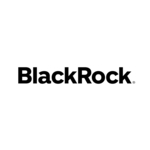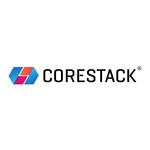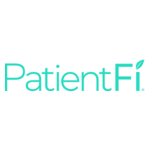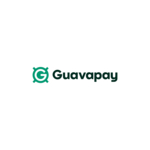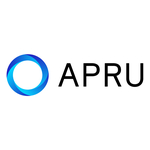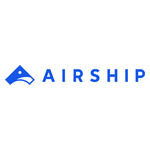The Worldwide Wearable Payment Device Industry is Expected to Reach $82 Billion by 2026 at a CAGR of 13.6% from 2021
Dublin, April 22, 2021 (GLOBE NEWSWIRE) — The “Global Wearable Payment Device Market with COVID-19 Impact Analysis by Device Type (Smart Watches, Fitness Trackers), Technology (NFC, RFID), Sales Channel, Application (Retail/Grocery Stores, Restaurants, Entertainment Centers), and Geography – Forecast to 2026” report has been added to ResearchAndMarkets.com’s offering.
The global wearable payment device market is projected to grow from USD 43 billion in 2021 to USD 82 billion by 2026; it is expected to grow at a CAGR of 13.6% from 2021 to 2026.
The growth of the wearable payment device market is majorly driven by surge in the adoption of contactless cards and wearable devices due to the COVID-19 situation, emerging demand for contactless payment for secure and safer payment transactions, and the growing adoption of NFC technology.
COVID-19 has emerged as a global pandemic that has spread over 215 countries worldwide and disrupted various industries around the world. The prominent players across industries have been affected by this pandemic. However, the pandemic may have positive impact on the wearable payment device market. With the going COVID-19 pandemic situation, there is a rise in the adoption of contactless payment methods due to the rise in severe health concerns. This is anticipated to increases the demand for smart watches with payment functions in the coming years.
Smart watches expected to hold the largest market share during the forecast period
Smart watches held the largest share of the wearable payment market in 2020. In the recent years, smart watches have NFC technology integrated into them to enable mobile payments. Manufacturers such as Samsung (South Korea), Apple (US), Garmin (Switzerland), and others offer advanced smart watches with payment-enabled features. Besides, in terms of shipment, smart watches accounted for the highest number of shipped units of devices integrated with mobile payment functions in 2020, globally, as compared to other device types. With the going COVID-19 pandemic situation, there is a rise in the adoption of contactless payment methods due to the rise in severe health concerns. This is anticipated to increases the demand for smart watches with payment functions in the coming years.
Retail and grocery stores application is expected to grow at the highest CAGR during the forecast period
The wearable payment device market for the retail and grocery stores is expected to grow at the highest CAGR from 2021 to 2026. Consumers have been using contactless payment through wearable devices for billing in retail and grocery stores, as they are convenient and allow the consumers to keep a record of their transactions. Besides, with the ongoing COVID-19 pandemic, consumers are increasingly veering away from handling cash due to the fear of spreading the disease. According to a new National Retail Federation survey, 67% of retailer respondents accept some form of no-touch payment in 2020. Also, several retailers across the world are investing in contactless payment technologies to keep customers safe. Thus, the market for retail and grocery stores is expected to grow at the highest rate during the forecast period.
APAC is projected to grow at the highest CAGR during the forecast period
Wearable payment device market in APAC is expected to grow at the highest CAGR during 2021-2026. The region has the presence of prominent players of wearable devices. The manufacturers in China and India offer wearable devices at a low price, making them affordable for customers. Many international players get their wearable devices manufactured and assembled by local manufacturers based in the region and then brand their names. The region holds many highly populated countries, which account for the high adoption rate of consumer electronics. The ongoing COVID-19 pandemic has accelerated the rise of the digital economy, particularly contactless payments. This, in turn, is expected to increase the demand for wearable payment devices in APAC.
Key Topics Covered:
1 Introduction
2 Research Methodology
3 Executive Summary
3.1 Post-COVID-19 Scenario
3.2 Optimistic Scenario (Post-COVID-19)
3.3 Pessimistic Scenario (Post-COVID-19)
4 Premium Insights
4.1 Opportunities in Wearable Payment Device Market
4.2 Wearable Payment Device Market, by Device Type
4.3 Wearable Payment Device Market in APAC, by Application and Country, 2026
4.4 Wearable Payment Device Market, by Application
4.5 Wearable Payment Device Market, by Country
5 Market Overview
5.1 Introduction
5.2 Market Dynamics
5.2.1 Drivers
5.2.1.1 Growing Inclination Toward Contactless Payment Methods due to Hygiene Concerns Amid COVID-19
5.2.1.2 Surging Adoption of Secure and Advanced Technology-Based Digital Payment Solutions
5.2.1.3 Increasing Focus of Wearable Technology Providers on Offering Enhanced Customer Services with Mobile Applications
5.2.1.4 Escalating Use of NFC Technology in Wearable Devices
5.2.1.5 Rising Demand for Wearable Electronic Devices, Which, in Turn, Would Propel Growth of Wearable Payment Devices
5.2.2 Restraints
5.2.2.1 Battery Drain Issues in Wearable Payment Devices
5.2.2.2 Shorter Life Cycle of Consumer Electronics
5.2.3 Opportunities
5.2.3.1 Increasing Adoption of Advanced Technologies, such as NFC, RFID, and Host Card Emulation, in Wearable Payment Devices
5.2.4 Challenges
5.2.4.1 Security Concerns Related to Wearable Payment Devices
5.3 Value Chain Analysis
5.4 Ecosystem Analysis
5.5 Porter’s Five Forces Analysis
5.6 Case Study Analysis
5.7 Technology Analysis
5.7.1 Growing Popularity of IoT and Connected Devices
5.7.2 Rising Focus on Implementing Artificial Intelligence in Wearables
5.7.3 Surging Requirement to Improve Performance of Wearable Payment Devices by Adding 5G Technology
5.8 Pricing Analysis
5.9 Trade Analysis
5.10 Patent Analysis
5.11 Tariff & Regulatory Landscape
5.11.1 Tariff Landscape
5.11.2 Regulatory Landscape
6 Wearable Payment Device Market, by Device Type
6.1 Introduction
6.2 Smart Watches
6.2.1 Smart Watches are Most Popular Wearable Payment Devices
6.3 Fitness Trackers
6.3.1 Payment Functions are Integrated into Fitness Trackers to Innovate Devices and Enhance Customers’ Convenience
6.4 Payment Wristbands
6.4.1 Payment Wristbands are Widely Used for Closed-Loop Payments
6.5 Smart Rings
6.5.1 Smart Rings Allow Customers to Pay for Small Purchases
7 Wearable Payment Device Market, by Technology
7.1 Introduction
7.2 NFC (Near Field Communications)
7.2.1 Most of Wearable Payment Devices are Integrated with NFC Technology to Enable Payment Functions
7.3 RFID (Radio Frequency Identification)
7.3.1 Contactless Transactions Enabled by RFID Technology are Faster, Convenient, and More Secure
7.4 QR & Barcodes
7.4.1 QR & Barcode Technology Has Been Adopted in Fitness Trackers to Enable Payment Functions
8 Wearable Payment Device Market, by Sales Channel
8.1 Introduction
8.2 Direct Sales Channel
8.2.1 Major Players in Market Offer Their Wearable Payment Devices Through Their Online and Offline Stores
8.3 Indirect Sales Channel
8.3.1 Indirect Sales is Most Preferred by Wearable Device Providers, Globally
9 Wearable Payment Device Market, by Application
9.1 Introduction
9.2 Impact of COVID-19 on Applications of Wearable Payment Device Market
9.3 Retail/Grocery Stores
9.3.1 COVID-19 Pandemic Has Increased Adoption of Wearable Payment Devices in Grocery Stores
9.4 Restaurants
9.4.1 NFC-Enabled Wearable Devices to Enhance Customer Experience in Restaurants
9.5 Hospitals/Pharmacies
9.5.1 Secure, Simple, and Efficient Payment Methods Driving Growth of Wearable Payment Devices
9.6 Entertainment Centers
9.6.1 Payment Wristbands to Enhance Customer Experience Post-Pandemic
9.7 Others
10 Geographic Analysis
10.1 Introduction
10.2 North America
10.3 Europe
10.4 Asia-Pacific
10.5 RoW
11 Competitive Landscape
11.1 Introduction
11.2 Top 5 Company Revenue Analysis
11.3 Market Share Analysis, 2020
11.4 Competitive Leadership Mapping
11.4.1 Star
11.4.2 Emerging Leaders
11.4.3 Pervasive
11.4.4 Participant
11.4.5 Wearable Payment Device Market: Product Footprint
11.5 Small and Medium Enterprises (SME) Evaluation Quadrant, 2020
11.5.1 Progressive Companies
11.5.2 Responsive Companies
11.5.3 Dynamic Companies
11.5.4 Starting Blocks
11.6 Competitive Situations and Trends
11.6.1 Wearable Payment Device Market: Product Launches, January 2018-February 2021
11.6.2 Wearable Payment Device Market: Deals, January 2018-Feb-21
12 Company Profiles
12.1 Introduction
12.2 Impact of COVID-19 on Players of Wearable Payment Device Market
12.3 Key Players
12.3.1 Apple Inc.
12.3.2 Fitbit, Inc.
12.3.3 Xiaomi Corporation
12.3.4 Samsung Electronic Co. Ltd.
12.3.5 Garmin Ltd.
12.3.6 Google LLC
12.3.7 Tappy Technologies Ltd.
12.3.8 Barclays plc
12.3.9 Visa Inc.
12.3.10 PayPal Holding Inc.
12.3.11 Mastercard
12.4 Other Key Players
12.4.1 Microsoft Corporation
12.4.2 Huawei Technologies
12.4.3 Sony Corporation
12.4.4 Thales SA
12.4.5 Westpac
12.4.6 Intelligent Venue Solutions
12.4.7 Caxia Bank
12.4.8 Intellitix
12.4.9 NYMI
12.4.10 McLEAR Ltd.
12.4.11 Jakcom Technology Co.
12.4.12 Token
12.4.13 Infineon Technologies AG
12.4.14 PrintPlast
13 Appendix
13.1 Insights of Industry Experts
13.2 Discussion Guide
13.3 Knowledge Store: The Subscription Portal
13.4 Available Customizations
For more information about this report visit https://www.researchandmarkets.com/r/4ju6zz
CONTACT: CONTACT: ResearchAndMarkets.com
Laura Wood, Senior Press Manager
[email protected]
For E.S.T Office Hours Call 1-917-300-0470
For U.S./CAN Toll Free Call 1-800-526-8630
For GMT Office Hours Call +353-1-416-8900






























